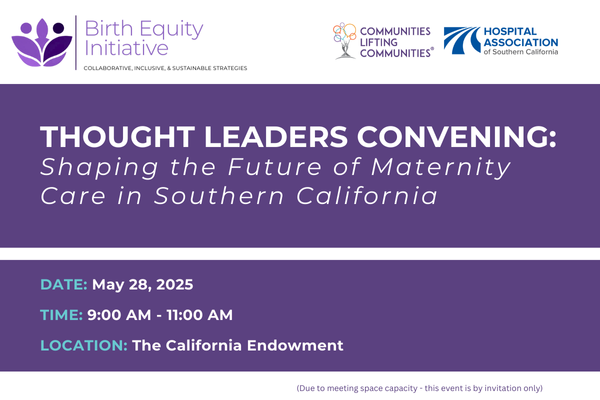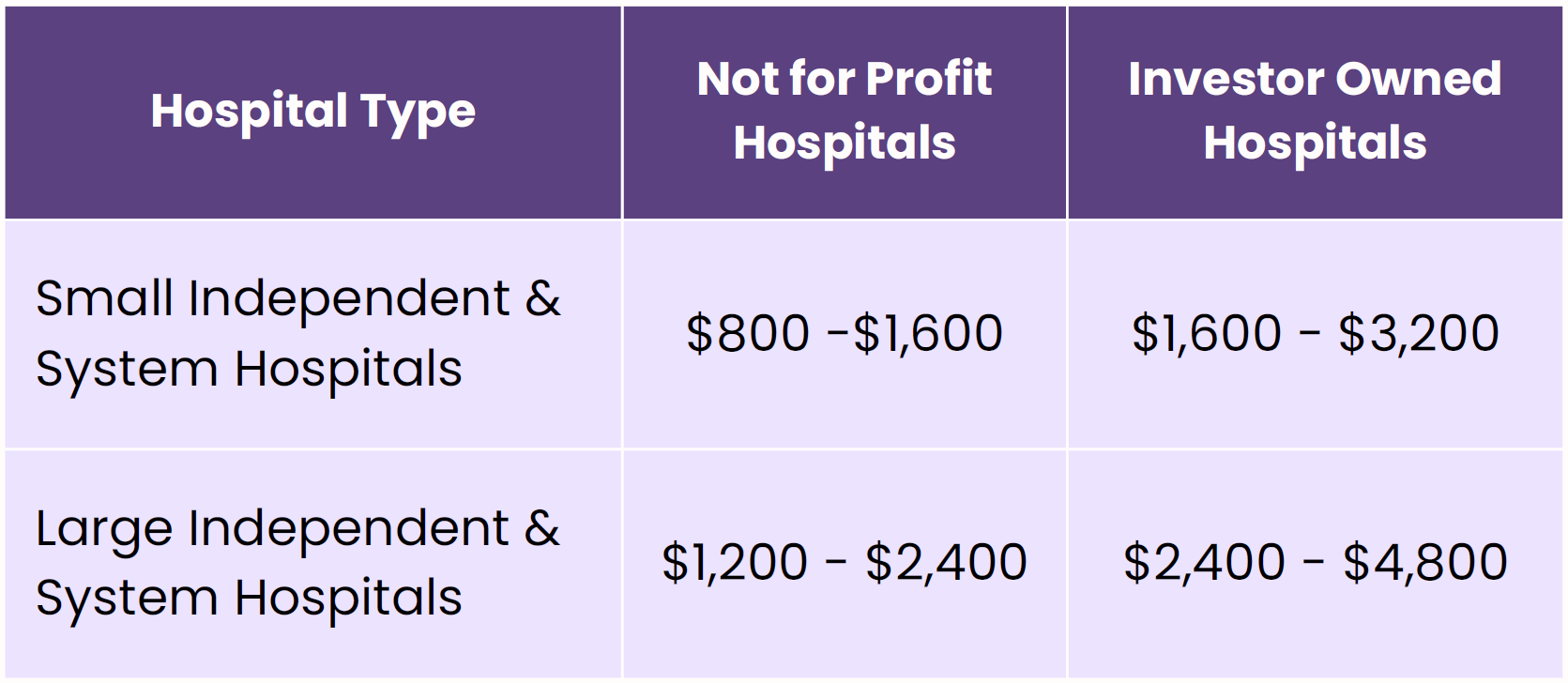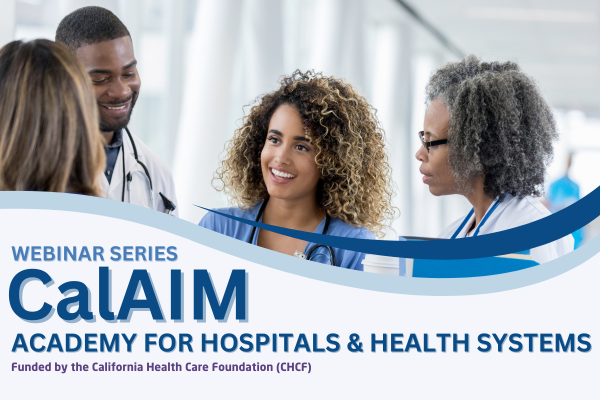Thought Leaders Convening: Shaping the Future of Maternity Care in Southern California
Communities Lifting Communities (CLC) and the Hospital Association of Southern California (HASC) invite you to an exclusive Thought Leaders Convening to discuss and shape our region’s next phase of birth equity. Your expertise and insights are critical as we review the California Hospital Association’s Maternity Care in California: An Environmental Scan, discuss how California’s labor and delivery needs are changing, and considerations for a path forward in Southern California. We will share our birth equity concept aimed at improving outcomes for all birthing people, particularly communities of color.
We are bringing together multi-sector thought leaders from all six counties – Los Angeles, Orange County, Riverside, San Bernardino, Santa Barbara, and Ventura – to collaborate on innovative solutions that benefit birthing people in the entire region.
Convening Highlights
- Review the latest environmental scan on maternity care in California.
- Discuss key findings and enhancements to the Organizational Birth Equity Assessment (OBEA).
- Identify existing programs and initiatives in the region by geography to bridge potential collaboration opportunities and create sustainable strategies.
- Explore the current Birth Equity Programming Suite offered by CLC/HASC and provide input.
Date: May 28, 2025
Time: 9:00 – 11:00 AM
Location: The California Endowment
(Due to meeting space capacity, this event is by invitation only).
Need more information? Contact Karen Ochoa, Director of Health Equity programs at kochoa@hasc.org or (213) 528-0765.







